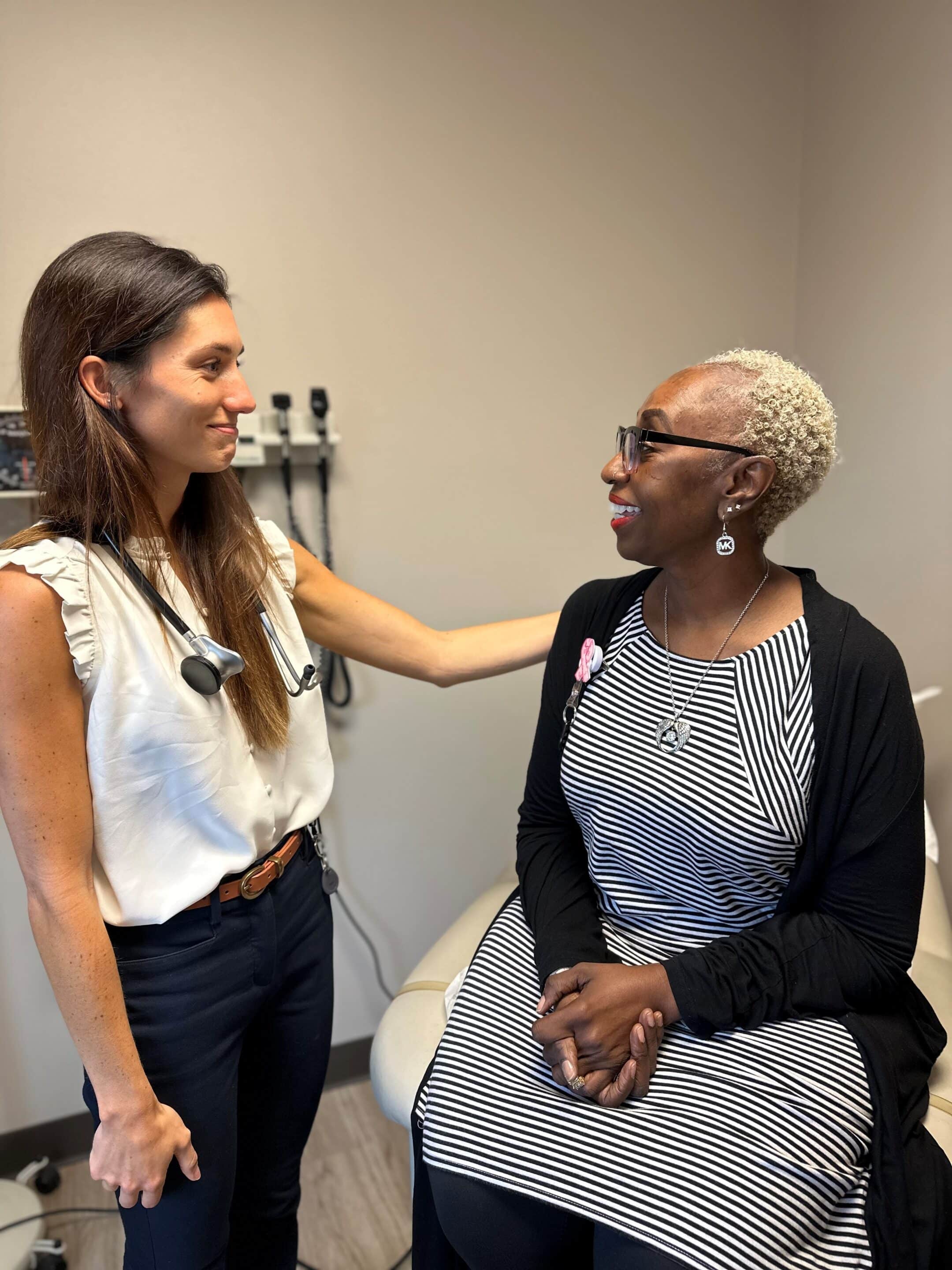Pancreatic Cancer
Services
Pancreatic Cancer
Your journey begins with a thorough assessment that considers your medical history, current health status, lifestyle, emotional well-being, and treatment preferences. This comprehensive understanding helps us tailor a treatment plan that aligns with your unique needs.
About Pancreatic Cancer
Most pancreatic cancers are exocrine cancers. Pancreatic neuroendocrine tumors (NETs), or islet cell tumors, are less common but tend to have a better outlook (prognosis).
Pancreatic cancer can be classified into two main categories based on the type of cell they start in: exocrine tumors and neuroendocrine tumors.
Exocrine Tumors: Most pancreatic cancers are exocrine cancers, which means they start in the exocrine cells that produce digestive enzymes. The most common type of exocrine pancreatic cancer is adenocarcinoma, which begins in the cells lining the pancreatic duct. These types of cancers are generally more aggressive and have a poorer prognosis compared to neuroendocrine tumors, especially because they are often diagnosed at a later stage when they are more difficult to treat.
Pancreatic Neuroendocrine Tumors (NETs): Also known as islet cell tumors, these are much less common and arise from the islet cells of the pancreas, which produce hormones like insulin and glucagon. NETs can be either functional (secreting hormones) or nonfunctional (not secreting hormones), and they tend to grow at a slower pace than exocrine tumors. While the prognosis for pancreatic NETs is generally better than for exocrine pancreatic cancers, it can vary greatly depending on the specific type of tumor, whether it produces hormones, and whether it has spread to other parts of the body.
How We Approach Pancreatic Cancer
Treatment options for pancreatic cancer depend on the type and stage of the cancer. For exocrine pancreatic cancers, especially those that are localized, surgery may be an option. This could be followed by chemotherapy, radiation therapy, or a combination of both. For advanced cancers, systemic therapies are the main approach.
For pancreatic NETs, surgery is also a primary treatment if the tumor is localized and resectable. Other treatments might include targeted therapies, hormone therapy to address hormone-related symptoms, and other medications to control tumor growth and symptoms.
As with all cancers, an early diagnosis and treatment tailored to the specific type and stage of the cancer are critical in managing pancreatic cancer and improving the overall prognosis.
At Health and Wellness of Carmel we can support your immune system and even start treating the cancer as you prepare for surgery. At your first office visit we will obtain extensive labs to determine your overall health status including specific tumor markers, germ load, immune status, mold status, Nagalase, circulating tumor cell level, thermal graphic evaluation/heat measurement and the option of a complete genetic analysis of the tumor characteristics based upon the circulating tumor cells and even test the tumor susceptibility to natural treatments including hormone therapy, hyperthermia, and diet.
Tumor shrinkage and improved remission rates can sometimes be achieved through total body hyperthermia, SOT, IST, ATA, VAXO Q RE, mistletoe and targeted nutrient therapy. In most cases we recommend surgical excision of the tumor. This is removal of the entire tumor making sure that the margins are clear. We do feel that oncologists have an important role to play for pancreatic cancers. Newer types of chemotherapy including targeted therapy can have a profound impact on the tumor with minimal side effects. Our treatments can nicely complement these treatments and our goal is to help achieve long-term remission.
Additional Steps
All our clients will be educated on the 20 actions to reverse chronic degenerative disease.
Our 1-year plan is that the patient will agree that their cancer was a wake-up call which forced them to enter a path to gain optimal wellness.
Call our clinic today or fill out our convenient Contact Us to schedule your consultation and receive your personalized treatment plan.



Services Used to Address Pancreatic Cancer
- Circulating Tumor Tests
- Far Infrared Heat Sauna
- Full Laboratory
- Holistic Cancer Treatments
- Immune Support
- IV Chelation Therapy
- IV Heavy Metal Detox Therapy
- IV Hydration Therapy
- IV Immunity Boost Therapy
- IV Iron Therapy
- IV Nutritional Therapy
- IV Therapy for Cancer
- IV Vitamin Therapy
- Lyme Disease Chronic Treatment
- Lyme Disease SOT Therapy
- Mold Allergy Treatment
- Mold Poisoning Treatment
- Mold Toxicity Treatment
- Nutrition Consultations
- Personalized Cancer Testing
- Red Light Therapy
- Regenerative Medicine Treatments
- RGCC Cancer Sensitivity Test
- Sono and Photo Dynamic Therapy
- Supportive Oligonucleotide Technique (SOT)
- Thermography Screening
- Vaxo-Q-Re
Request an Appointment With Our Team of Experts
Question or Comment? Please fill out the contact form and one of our office team members will be back in touch within one business day. For immediate assistance, please call our office at (317) 663-7123. Thank you so much!









